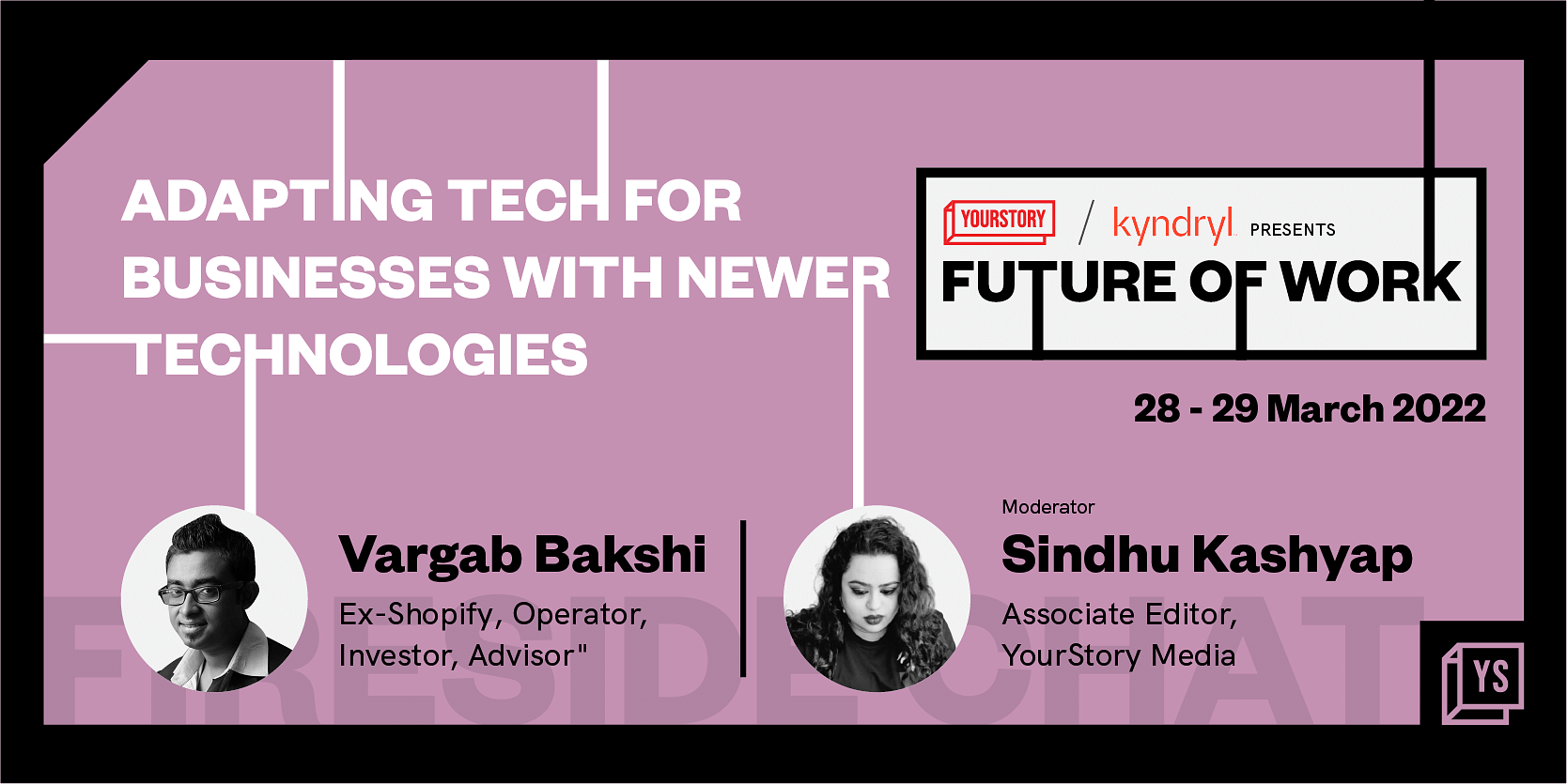The buzz around Metaverse is keeping Vargab Bakshi, the man credited with laying the foundation of Shopify in India and APAC region, excited these days.
The operator, investor and advisor is closely working with various entrepreneurs looking to build in the Web 3 space, and trying to decode the opportunities that are yet to transpire and potentially give rise to new ways of operating businesses all together.
“What would a Shopify or Twitter look like inside Web 3?” asks Vargab and continues the conversation, “Today, Twitter can censor any account or any tweet, but in the Web 3 world, they can’t. Today a payment service company can decide not to give a licence to, say, a herbal products company. In the Web3 world, you don’t have to depend on payment gateways or anyone to decide what you can sell and what you want. These are things that are changing the world for the better.”
Metaverse is only one of the areas that the leader is vouching for. At the heart of every business today lies data, which according to Vargab, is heading towards consolidation.
For instance, for Zomato to achieve its “10-minute delivery” success, it needs to know all the localities that need that 10-minute delivery more than the places that wouldn’t. This is possible with the help of data consolidation.
“I want to have a single view of my customer to understand them better. I want to know that they want to buy an iPhone before they themselves know that they want to buy it. That’s where Alibaba is today. The concept of data fabric is really coming up. It’s a new technology trend that allows you to provide flexible integration across various data platforms, get data to one place and provide that valuable intelligence right at the time the business needs it the most,” says Vargab.
While touching upon these two major tech trends, Vargab emphasis on cybersecurity and new measures that are much more flexible with composable architecture, allowing businesses to consolidate security at one place. The adoption of new technologies must be complemented with investment in cybersecurity and right talent, to make sure that data breaches and security lapses do not happen.
“Data is so much more distributed now that there can be a loophole at any one place and the hacker can get in easily. Please invest in security teams and hire the right talent to make sure that those potential lapses do not happen. Penetration testing also goes a long way and a lot of companies don’t take it seriously. Introduce automation to monitor your security,” advises Vargab.
Tapping the new-age consumer
The consumer lies at the centre of all the tech evolutions taking place across sectors. Therefore, every new emerging technology would revolve around their convenience.
“Convenience is coming to the centre of everything, whether it’s a business owner or a consumer making a decision. How convenient is it for me to adopt a new technology, implement a new architecture, or take a simple decision of whether I should be going for 10-minute delivery or wait for Amazon to give it to me the next day. Convenience is what will rule decision making for the customer, and drive behaviours that we haven’t seen before,” says Vargab.
Having built Shopify India from the scratch during the early 20s, Vargab lays down three most important things that brands must follow to hit the right note in the market.
To begin with, an entrepreneur must realise that a product company cannot completely operate as a “Do-It-Yourself” platform and needs to have a support ecosystem.
“I’m talking more from a Shopify ecommerce perspective, especially in D2C businesses. People need to have a compelling brand, a compelling story, a beautiful website, creative assets that entice the customer to make a purchase or even visit your website. You may have a great product but might not know how to present it to the online world. This is where an ecosystem comes into play,” he says.
Second important factor is product localisation. For any Software-as-a-Service (SaaS) company looking to expand internationally, it’s imperative for them to localise the product. The expert cites Canada-based Shopify’s example on how it “tweaked itself as an Indian company”, in terms of design, branding, messaging, user experience and integration with local companies, for establishing a local footprint and higher adoption.
Advice to techies
Vargab advises techies and entrepreneurs to learn new technologies, even if they are outside their domain. “ Don’t restrict yourself and learn new technologies. This would make you more valuable and hence provide you the flexibility to work with anything or from anywhere,” he says.
Techies must also look for a side hustle and increase their risk taking appetite. “There’s a high amount of aspiration, but execution capabilities continue to suffer a little. So it’s important to take courses and learn the basics of starting a side hustle or try out something new. You have to keep trying, you’re going to succeed one day,” signs off Vargab.





![Read more about the article [Funding roundup] VsnapU, OLL raise early-stage rounds](https://blog.digitalsevaa.com/wp-content/uploads/2022/08/IMG-4730-1661409550298-300x143.jpg)




